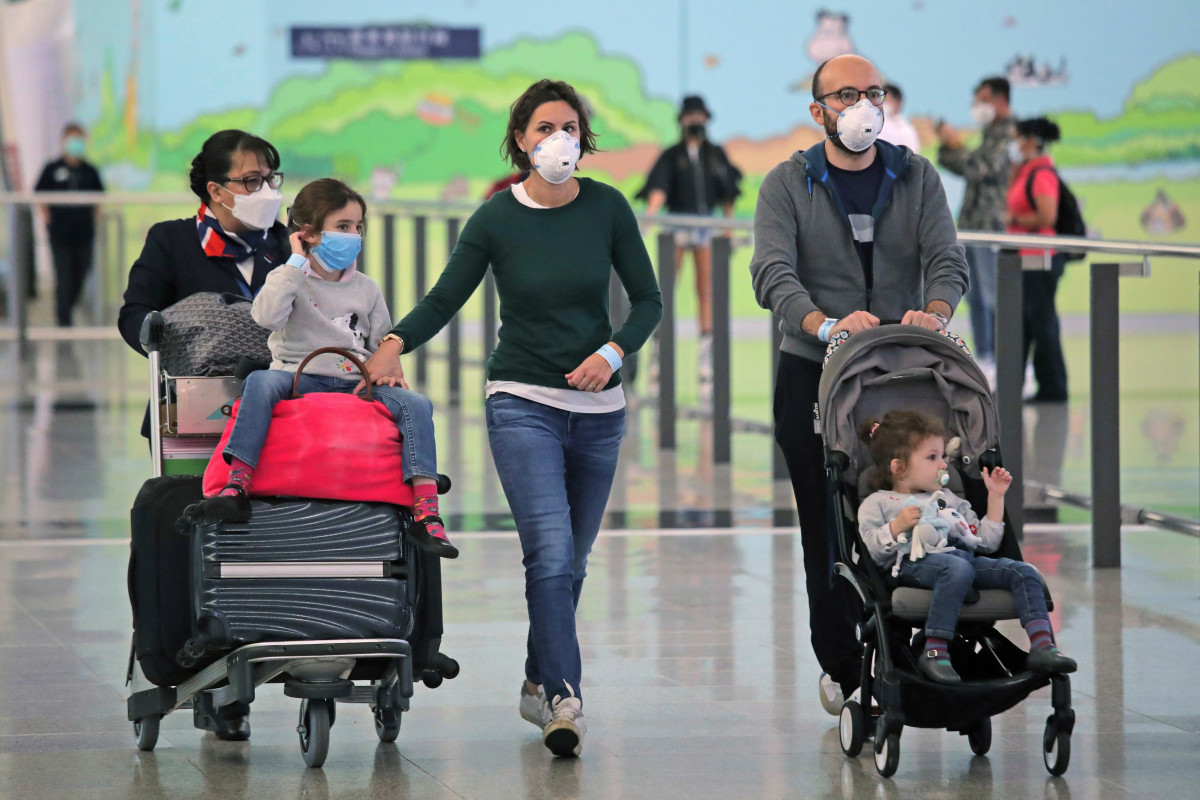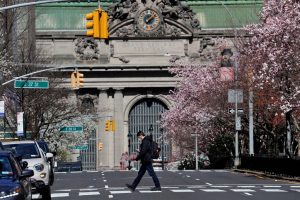Foreign desk: A Hong Kong Corona Warning
“Only a week ago, Hong Kong seemed like a model for how to contain the novel coronavirus,” with just “some 150 cases,” but now, CNN’s James Griffiths notes, it’s “providing a very different object lesson — what happens when you let your guard down too soon.” Many Hong Kong residents left when “the city seemed destined for a major outbreak” but returned when all seemed safe — and they are “bringing the virus back with them.” In response, the city has implemented “draconian new controls,” which shows that “quarantines and social distancing must continue well beyond the initial wave of cases, if another round of infections is to be avoided.” That’s “Asia’s latest lesson” for the West: Even “when it seems the coast is clear, keep your guard up.”
Campaign watch: Not-So-Presidential Joe
Presumptive Democratic nominee Joe Biden “had gone unseen for some time in the midst of the coronavirus crisis” — but after Biden’s Monday public address, snarks the editorial board of Issues & Insights, “his supporters might want him to go back into hiding.” Biden “seemed tired,” had a “leaden” delivery, “slurred his words” and “repeatedly stumbled in his remarks, despite reading them from a teleprompter.” The contents of his speech “weren’t any better than his delivery,” either: After “inviting President Donald Trump to refrain from attacking his political opponents,” for one thing, Biden “proceeded to preview a lengthy political attack on Trump.” He ended by attempting “lofty rhetoric that fell horribly flat” — something that characterized the entire speech.
Progressive: Cure Isn’t Worse Than Disease
At The Hill, public-policy prof Stuart Shapiro cites several reasons why the economic pain from government restrictions to fight COVID-19 aren’t “worse than the disease.” For starters, much of the slowdown “was happening without government intervention.” The NBA ended its season and airlines canceled flights on their own, because of “the economics of their businesses.” Meanwhile, government can “mitigate” the economic damage via bills like the stimulus package. And while COVID-19 might cause “ ‘only’ tens of thousands of deaths, there are credible estimates” that the US death toll could be “in the millions.” Few outcomes “could be more horrible than doing too little to contain COVID-19,” Shapiro argues. While “we can use policy to temper the economic costs,” we can’t use it “to bring loved ones back.”
From the left: A Mail-In Election Is Unlikely
Despite “a pandemic-driven flurry of calls for a massive expansion of voting by mail,” including legislation backed by Senate Democrats like Amy Klobuchar, it’s an unlikely answer now, reports ProPublica’s Jessica Huseman. While it may seem “an elegant solution as the United States grapples with containing COVID-19, experts say slow-moving state and county governments, inconsistent state rules and limited resources to buy essentials such as envelopes and scanners” make it nigh impossible to mail ballots to 200 million registered voters by November. US jurisdictions have taken years to move to vote-by-mail — six years in Washington state’s case. And all sides agree that “mail-in ballots are the form of voting most vulnerable to fraud.” Indeed, “ballot-harvesting scandals, in which political operatives tamper with absentee ballots that voters have entrusted to them, have marred recent elections in North Carolina and Texas.”
Libertarian: How Speech Reduces Pandemics
In response to the coronavirus outbreak, Chinese authorities “muzzled” dissenters, making several critics “disappear.” It shows, Reason’s Zach Weissmuller observes, the “enormous difference between a country that jails dissenting voices and a country with strong First Amendment protections.” US officials, after all, also tried to “downplay the crisis” — yet the free speech on platforms like Twitter and Facebook allowed “medical professionals, technologist, epidemiologists and everyday citizens” to bypass “the mainstream media and the government to implore their fellow citizens to act.” Conversation on social media may be “chaotic” and “confusing,” but it’s free, and that’s “a powerful weapon in this global emergency.”
— Compiled by The Post Editorial Board



















